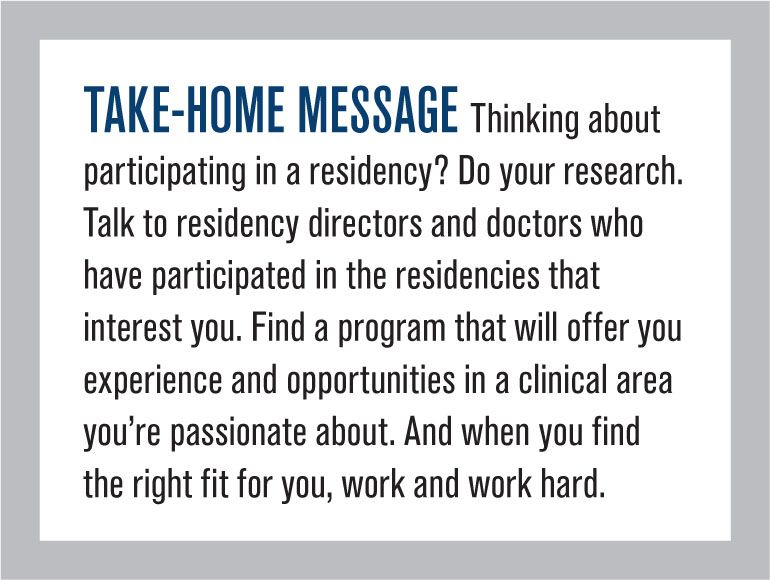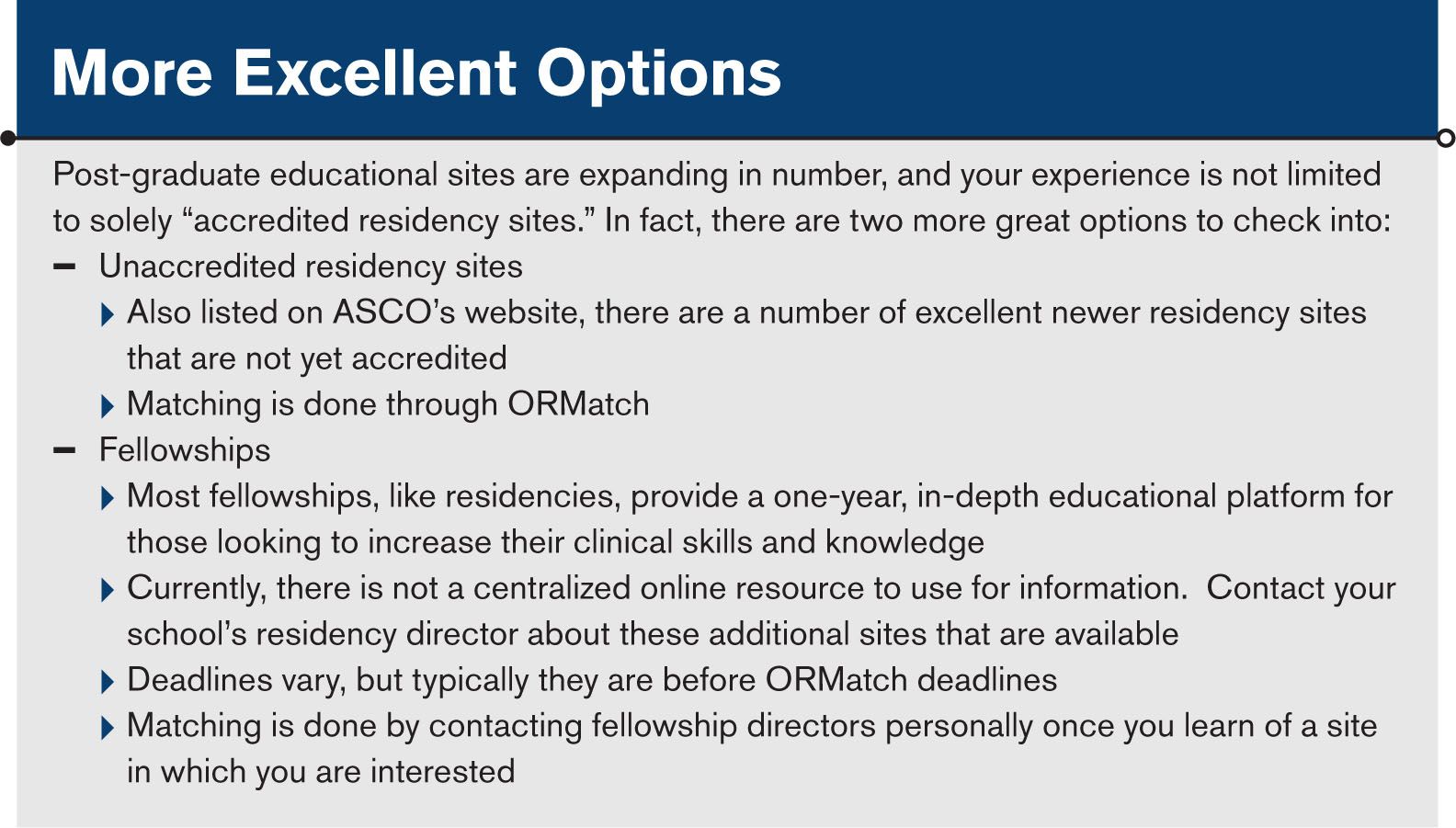How to crush it with a residency
I believe that residencies give an opportunity to catapult us into our careers. When approached with the right mindset and the fortitude to work your tail off, you will be surprised what one more year of training can bring you. Rarely do we get a guarantee in life, but I’ll give you one here: When you set out to crush it, are willing to work hard, are flexible, and consider failure as a learning opportunity, you are guaranteed to succeed.

I believe that residencies give an opportunity to catapult us into our careers. When approached with the right mindset and the fortitude to work your tail off, you will be surprised what one more year of training can bring you.
Rarely do we get a guarantee in life, but I’ll give you one here: When you set out to crush it, are willing to work hard, are flexible, and consider failure as a learning opportunity, you are guaranteed to succeed.
Below is a discussion from Alison Bozung, an intern at my clinic. She has impressed me with her ability to go above and beyond. As a fourth-year looking to take on a residency next year, if you follow her advice and approach “another year” as she is, you’ll come out of the experience having already succeeded.
The search is on
There comes a time in each optometry student’s life when graduation is finally right around the corner. For me, it’s a time of which I’ve dreamed for years. I cannot wait to walk that stage, grab my diploma, and make my next career move-by spending another year as a student.
Why residency was the best thing I ever did for my career
Over the last few months, I have been talking with peers about the residency search process. On one hand, it’s simple: choose your area of special interest, find the sites that fit you best, and apply. However, once the process begins, it can get a little overwhelming. What if we choose the wrong one? How do we know we will be matched with our top pick? I want to share things I have learned from both my mentors and peers alike regarding the search for the perfect residency. Sure, there are still details we all have to work through when deciding, but this can shed some light for students desiring to pursue (or those still on the fence about) another year of education.

Choose something that excites you.
A mentor recently told me that you can find your passion in optometry when you reflect on a hectic day of seeing a specific subset of patients. How did you feel at the end of the day of seeing pediatric patients or managing glaucoma? If you feel like you just ran a marathon backwards, this may not be your area. Instead, if at the end of the day, you feel tired but wired, I think you’ve found your niche.
Next: Talking goes a long way
Talking goes a long way.
In the midst of searching all possible residency options in your area of interest, don’t miss the importance of talking to those who have been in your shoes. Contact the residency directors of your prospective sites, and reach out to the current and previous residents who have spent time there. No one can give you the inside scoop of the residency programs like those who have done them. Ask them questions including the positives and negatives of their experience. Just think-that may be you next year!
Residencies open new doors.
We’ve all heard this. This phrase is thrown around often, but I think what it really means is that when you complete a residency, you have more room to choose your path. Technically speaking, there are specific job opportunities like Veterans’ Affairs hospitals, teaching institutions, some private practice offices, and co-management sites that require a residency-trained individual. Most optometry positions still do not require an additional year of training, but unless you have a specific career path already chosen, you may want to consider keeping your options wide open after graduation.
Is an optometric education cost-effective?
It’s OK to have weaknesses.
Weaknesses usually carry a negative connotation, but why? I’ll be the first to admit that the more I learn about optometry, I realize the less I know. As new grads, one of our (innate) weaknesses is that we are not seasoned veterans. We are not expected to be. So, you don’t have to apply for residency positions only if you know everything; apply for residency positions because you want to know everything.
Interview both ways.
When you arrive at your interview, don’t let yourself be completely on the witness stand. Remember: you’ll want to find out if the site is a wise fit for you just as much as they’re trying to decide if you’re a good match for them. Asking questions about what you can expect to see, how many patients you will have the chance to interact with, and how the mentoring relationships are built is not going to faze them. It can, however, give you great insight.
Next: Work your tail off.
Work your tail off.
Optometry school has been a mental workout. I also think we could all agree that Part I of national boards stole our social lives, and that second year was no joke, either! Though those things are in the past for the most part, a residency will likely begin one of the most demanding (and rewarding) years of your education. If you’re considering completing one, get ready to be a sponge.
Don’t let someone else make your decision.
This goes for all students. Not every student feels a pull to do a residency, and that’s OK! In the end, a residency is a huge investment for both the resident and the residency program. The biggest reward will be for the individuals who truly believe a residency is worth the time and pay-cut and are determined to make it so. Make your decision based on what you feel is right for you and not what you feel pressured to do.
Report says ODs have 'surprisingly low' salary
All conversation aside and regardless of what you decide for your post-graduate plans, remember what our education as optometric physicians boils down to. We strive so that we can provide the best care to every patient who finds his way into our exam chairs. That’s what each one deserves. And if we keep sight of the goal, we won’t miss the path to get there.
